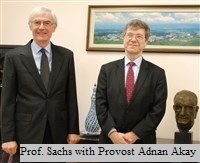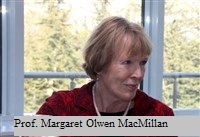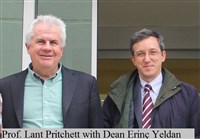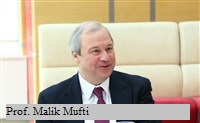
Four scholars known internationally for their work in the fields of economics, history and political science, who were in Ankara between January 10 and 16 for the 8th Ambassadors Conference hosted by the Turkish Ministry of Foreign Affairs, visited Bilkent University during their stay in the capital.
The guests, who came to Bilkent on different days, were Jeffrey D. Sachs, professor of economics and director of the Earth Institute at Columbia University, and also a senior UN advisor, bestselling author and globally syndicated columnist; Malik Mufti, professor of political science at Tufts University, where he teaches courses on international relations and the politics of the Middle East; Lant Pritchett, professor of the practice of international development at the Kennedy School of Government at Harvard University; and Margaret Olwen MacMillan, a Canadian historian and professor at the University of Oxford, where she is warden of St. Antony’s College.

The visitors toured the campus and the UNAM and NANOTAM facilities, met with members of the university administration, shared ideas with administrators and students, and gave seminars on “Determinants of Growth” (Prof. Sachs) and “The Political Economy of the Middle East” (Prof. Pritchett).of international development at the Kennedy School of Government at Harvard University; and Margaret Olwen MacMillan, a Canadian historian and professor at the University of Oxford, where she is warden of St. Antony’s College.
The visitors toured the campus and the UNAM and NANOTAM facilities, met with members of the university administration, shared ideas with administrators and students, and gave seminars on “Determinants of Growth” (Prof. Sachs) and “The Political Economy of the Middle East” (Prof. Pritchett).
In his lecture, Prof. Sachs discussed his views on global concerns over the threat of climate change and called for a sustainable development program with emphasis on renewable sources of energy, for which he used the term “decarbonization pathways.”

Prof. Pritchett, in his turn, shared his insights on the economics of development and challenged the role of institutions in promoting growth. In a provocative seminar, he argued that “good” institutions are not necessarily a prerequisite for economic growth, and that many of today’s high-middle income countries achieved their status through many forms of economic rents.

